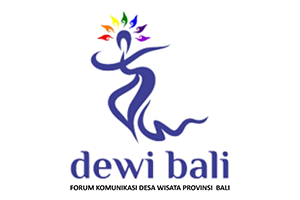The Effect of Social Media Usage on Visiting Intentions: The Moderating Role of Influencer Following Behavior Among Generation Z in Indonesia
Abstract
Social media is one of the primary sources for Generation Z in seeking travel information and inspiration. This study aims to understand the relationship between social media usage goals and visit intentions, and to examine the moderating role of following social media influencers. The study used quantitative methods by distributing questionnaires to 212 respondents. Hypothesis testing was conducted using structural equation modeling (SEM) and multiple linear regression. The results showed that influencer source credibility positively influences the attitudes of social media users (Generation Z), increasing their intention to visit recommended tourist destinations. In addition, influencer following behavior strengthens the relationship between social media usage goals and visit intention. The findings provide insights for the tourism industry in crafting more effective digital marketing strategies, utilizing influencers as a more personalized and experiential promotional tool.
Downloads
References
Ajzen, I. 2005. Attitudes, Personality, and Behavior. 2 nd. Edition. New York: Open University Press
Arora, N., & Lata, S. (2020). YouTube channels influence on destination visit intentions: An empirical analysis on the base of information adoption model. Journal of Indian Business Research, 12(1), 23-42.
Astina, A. A. S., & Sukaatmadja, I. P. G. (2024). Co-Branding, Influencer Marketing, dan E-WOM Berpengaruh terhadap Purchase Interest. E-Jurnal Manajemen, 13(12), 1716–1729.
Ayeh, J., Au, N. and Law, R. (2013), “Do we believe in TripAdvisor? Examining credibility perceptions and online travelers’ attitude toward using user-generated content”, Journal of Travel Research, Vol. 52 No. 4, pp. 437-452
Azkiah, M. R. (2023). Pengaruh Influencer Media Sosial Terhadap Sikap dan Niat Membeli Konsumen (Doctoral dissertation, Universitas Islam Indonesia).
Brown, D., & Hayes, N. (2008). Influencer marketing. Routledge.
Brown, D., & Fiorella, S. (2013). Influence marketing: How to create, manage, and measure brand influencers in social media marketing. Que Publishing.
Casaló, L. V., Flavián, C., & Ibáñez-Sánchez, S. (2020). Influencers on Instagram: Antecedents and consequences of opinion leadership. Journal of Business Research, 117, 510-519.
Djafarova, E., & Rushworth, C. (2017). Exploring the credibility of online celebrities' Instagram profiles in influencing the purchase decisions of young female users. Computers in Human Behavior, 68, 1-7.
Erwin, E., Subagja, A. D., Masliardi, A., Hansopaheluwakan, S., Kurniawan, S. D., Darmanto, E. B., & Muksin, N. N. (2023). Bisnis Digital: Strategi dan Teknik Pemasaran Terkini. PT. Green Pustaka Indonesia.
Evans , NJ , Phua , J. , Lim , J. dan Jun , H. (2017), “Mengungkapkan iklan influencer Instagram: efek bahasa pengungkapan pada pengenalan iklan, sikap, dan niat perilaku”,Jurnal Periklanan Interaktif, Vol . 17No.2,hal.138-149.
Fernandes, D. P. (2020). Komunikasi Persuasif Unit Donor Darah Palang Merah Indonesia (UTD-PMI) Kota Padang dalam Pelasanaan Kegiatan Donor Darah (Doctoral dissertation, Universitas Andalas).
Haryono, G., & Albetris, A. (2022). Peranan Komunikasi Pemasaran Pariwisata Melalui Pemanfaatan E-Tourism Marketing untuk Meningkatkan Niat Berkunjung Wisatawan. Ekonomis: Journal of Economics and Business, 6(1), 136-143.
Hovland , CI , Janis , IL dan Kelley , HH (1953),Komunikasi dan Persuasi,Yale University Press.
Hudders, L., De Jans, S., & De Veirman, M. (2021). The commercialization of social media stars: A literature review and conceptual framework on the strategic use of social media influencers. International Journal of Advertising, 40(3), 327-375.
Joyce H. Chen H. Millennial social media users’ intention to travel: the moderating role of social media influencer following behavior. Lester E. Kabacoff School of Hotel, Restaurant and Tourism Administration, University of New Orleans, New Orleans, Louisiana, USA.
Kaplan, A. M., & Haenlein, M. (2010). "Users of the world, unite! The challenges and opportunities of Social Media." Business Horizons, 53(1), 59-68.
Kotler, Keller. 2009. Manajemen Pemasaran. Penerbit Erlangga. Jakarta
Leung, D., Bai, B., & Stahura, K. A. (2015). The marketing effectiveness of social media in the hotel industry: A comparison of Facebook and Twitter. Journal of Hospitality and Tourism Technology, 6(2), 134-154.
Lim, X.J., Radzol, A.R., Cheah, J. and Wong, M.W. (2017), “The impact of social media influencers on purchase intention and the mediation effect of customer attitude”, Asian Journal of Business Research, Vol. 7 No. 2, pp. 19-36
Lou, C., & Yuan, S. (2019). Influencer marketing: How message value and credibility affect consumer trust of branded content on social media. Journal of Interactive Advertising, 19(1), 58-73.
Mao, J. (2014). Social media for learning: A mixed methods study on high school students’ technology affordances and perspectives. Computers in Human Behavior, 213-223.
Moon , JW dan Kim , YG (2001), “Memperluas TAM untuk konteks world-wide-web”,Informasi dan Manajemen, Vol. 38No.4, hal.217-230.
Nina A. 2018. Analisisi Pengaruh Theory of Planned Behavior Terhadap Niat Beli Makanan Halal Pada Masyarakat Surakarta. Institut Agama Islam Negeri Surakarta
Nugroho, D. A., & Suryadi, N. (2023). Dasar-Dasar Digital Marketing: Teknologi, Media Sosial, dan Strategi. Universitas Brawijaya Press.
Tafesse, W., & Wood, B. P. (2021). Followers’ engagement with Instagram influencers: The role of influencer content and engagement strategy. Journal of Retailing and Consumer Services, 58, 102303.
Thomson, M. (2006), “Human brands: investigating antecedents to consumers’ strong attachments to celebrities”, Journal of Marketing, Vol. 70 No. 3, pp. 104-11
Xu, X., & Pratt, S. (2018). Social media influencers as endorsers to promote travel destinations: An application of self-congruence theory. Journal of Travel Research, 57(8), 994-1007.
Xu , Y. dan Chen , Z. (2006), “Penilaian relevansi: apa yang dipertimbangkan pengguna informasi di luar topikalitas? ”,Jurnal Masyarakat Amerika untuk Sains dan Teknologi Informasi, Vol. 57No.7,hal.961-973.
Zeng, B., & Gerritsen, R. (2014). What do we know about social media in tourism? A review. Tourism Management, 44, 120-130.
Zheng, X., Luo, J. M., & Shang, Z. (2022). Effect of parasocial relationship on tourist’s destination attitude and visit intention. PLoS One, 17(4), e0265259.

This work is licensed under a Creative Commons Attribution 4.0 International License.
The copyright of the received article shall be assigned to the journal as the publisher of the journal. The intended copyright includes the right to publish the article in various forms (including reprints). The journal maintains the publishing rights to the published articles.




















